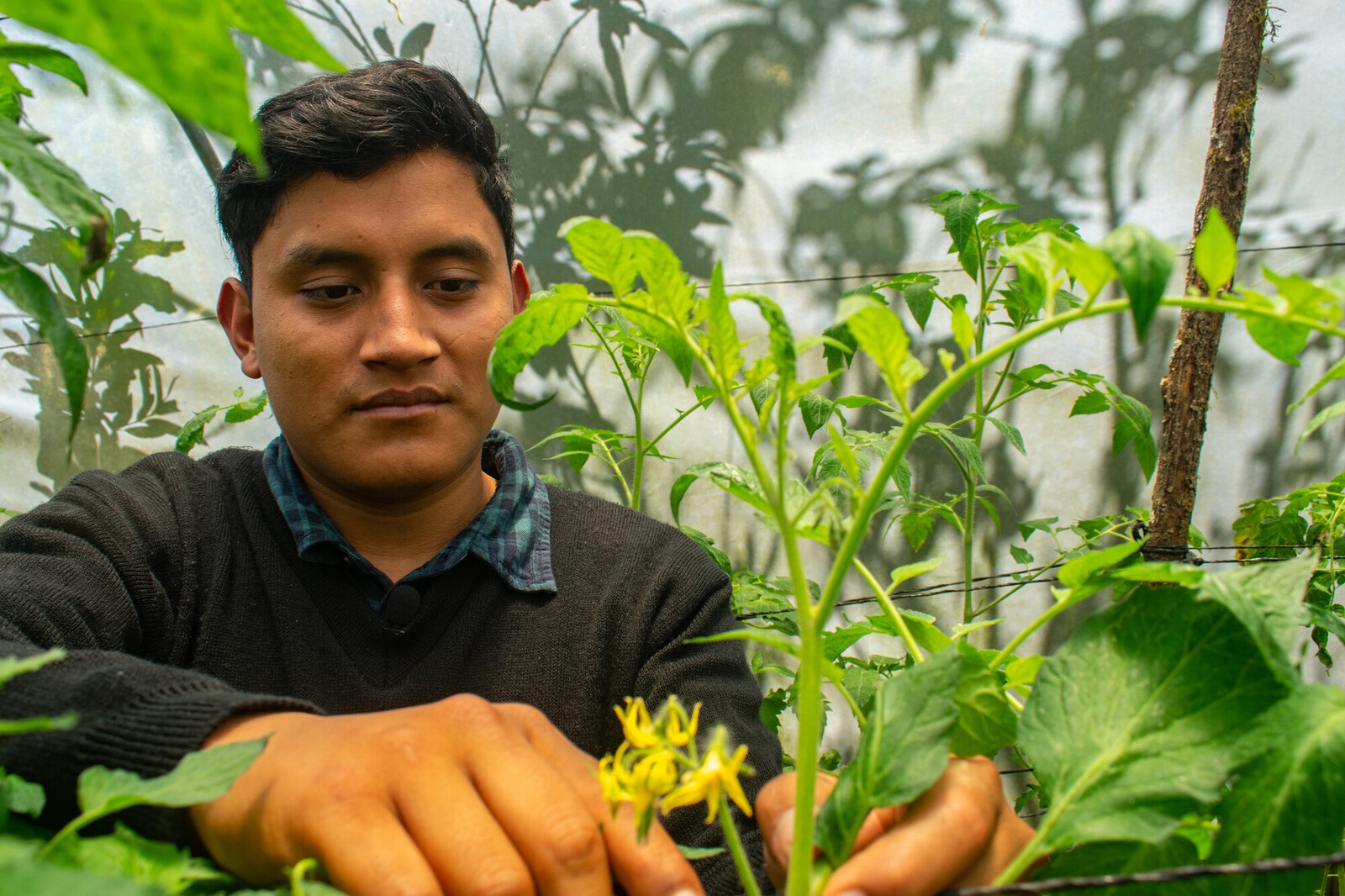
In Guatemala, a participant of the youth organizing group Chemol Tzumb'al cares for plants in his garden. Luis Ochoa
1. Support your local food system.
Purchase from local farms at farmer’s markets, Community Supported Agriculture (CSA) shares, and grocery stores.
2. Be a good neighbor, be a “food neighbor.”
Support community gardens. Use native plants on your lawns that help pollinators. Avoid the use of chemicals/pesticides at your home. Grow edible food to share.
3. Learn from stewards of your local food system.
Host local farmers and food agency staff at your faith community or civic group for a “lunch and learn.” Research and attend their events to understand how your local food system operates.
4. Advocate for policies that promote food security.
Urge your local, state, and federal policymakers to support programs like SNAP, WIC, and free school meals. The funds often support local farms while helping people meet basic needs.
5. Call for climate justice.
Write to your elected officials urging them to pass policies that put the welfare of our people and the planet before the profits of fossil fuel polluters. Take action at afsc.org/ClimateAction.
